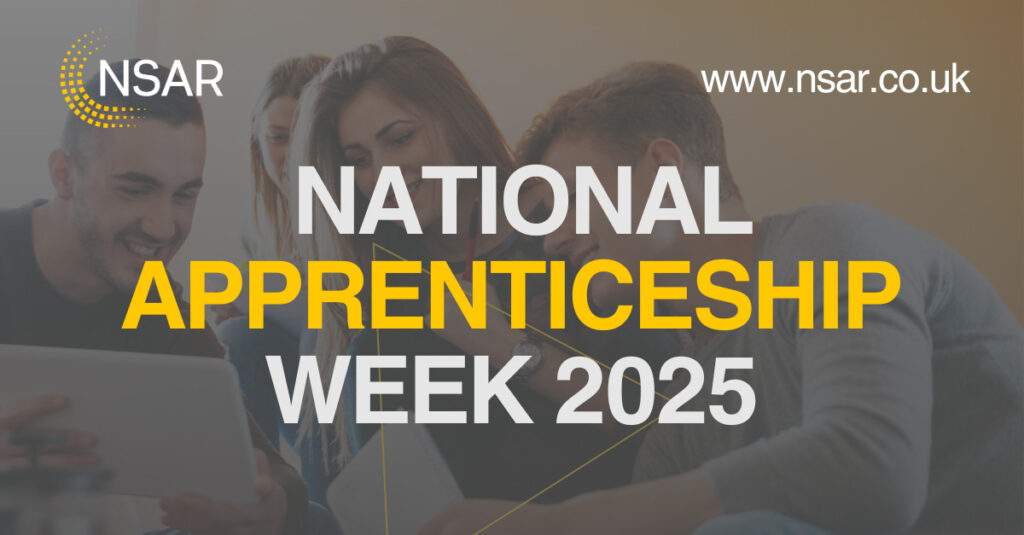For National Apprenticeship Week 2025, NSAR Chief Executive Neil Robertson writes about the role of apprenticeships in meeting an evolving demand for skills.
Rail is a complex industry that plays a vital role, responsible for moving vast volumes of goods and people across large distances safely and efficiently. However, the industry faces a significant challenge in developing and maintaining a skilled workforce that can keep pace with rapid technological changes, demographic shifts and evolving market demands.
Rail is facing a critical loss of experience and knowledge. The number of people leaving through retirement and other forms of attrition could be 90,000 workers by 2030. NSAR’s 2024 Rail Workforce Survey shows that there are clear and key areas where consistent workforce deficits exist – which include Signalling & Telecoms, Systems Engineering and Electrification & Plant – where the gaps typically range between 2,000 and 3,000 people per annum. These deficits are creating premiums for skills – for Electrification 12% and for Signalling 10%, evidenced by increased salary demands.
Track and track-side safety competencies and skills remain foundational to the UK railway. However, various factors – including technological advancements, industry trends and regulatory changes – are influencing the demand for specific skills. Proficiency in digital technologies for managing rail operations and data analytics for optimising performance, predictive maintenance and decision-making are becoming more important. Other examples are skills related to autonomous and remote train operations and cybersecurity, as well as commercial and financial skills. What were once common roles with distinct pathways now have different specialisations and development paths. Signalling & Telecoms are becoming more digital and technologically focused and better aligned with emerging digital skills, rather than traditional engineering. Much of these new skills and innovative technologies lie with the supply chains asked to respond to the major capital investment and maintenance programmes.
People are not the same as nuts and bolts – you cannot always buy more when you need them. Filling workforce gaps requires planned increases in training. Training allows employees to acquire new skills or upgrade existing ones to meet the needs of the evolving industry and technologies. This training should not be delivered in isolation – it should form part of a wider industry plan providing opportunities for both new recruits to the sector and for those already in the sector to access upskilling.
Broader use of apprenticeships needs to be a core component of this training plan at all levels and made available to a wider range of current rail employees. Apprenticeships are medium-term solutions that remain one of the most efficient and cost-effective ways to build the workforce, as well as increase social value. Predominantly, the skills needed to fill shortages are at levels 2, 3 and 4, which are often most optimally acquired through apprenticeships. Apprentices are also the most cost-effective approach, far cheaper than the alternative of paying inflated wages to retain existing talent.
Tier 1 organisations have the contracts and resources to run apprenticeship programmes, but this is often not the case for supply chain businesses. As an industry, we must support SMEs to take on apprentices. NSAR’s range of apprenticeship services are designed for this – ‘lighter touch’ assistance with apprenticeship levies, planning, assessment and quality assurance, as well as more intense support such as help with workforce planning, apprentice sourcing and apprenticeship management. As a designated flexi-job apprenticeship provider, we can even employ apprentices on a business’ behalf.
With a commitment to training, apprenticeships and a diverse and skilled workforce, the rail industry is well-positioned to overcome its current challenges and continue to play a vital role in the UK’s transportation infrastructure. I encourage all rail businesses to consider how training, apprentices and diverse recruitment practices can be incorporated into their business plan.
Neil Robertson
NSAR Chief Executive

